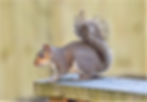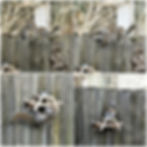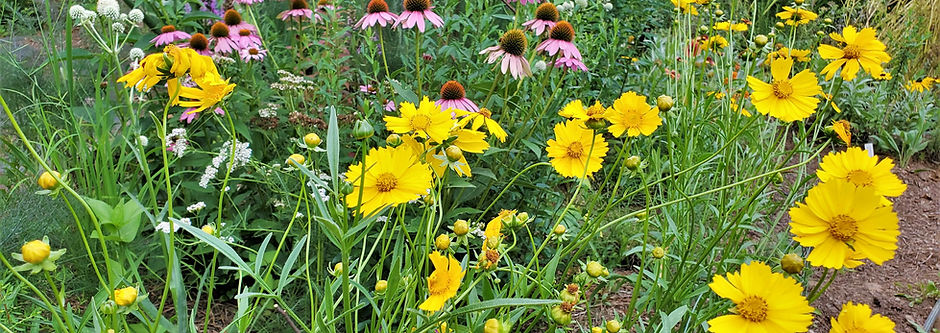Squirrels: Ambassadors for Coexisting with Nature in Our Yards
- ljmarkson
- Mar 11, 2021
- 4 min read
Updated: Oct 5, 2025
Our house is our human nest but once we step outside, we share space with wildlife. Just because we’ve destroyed habitats to build our homes doesn’t mean we own nature. My neighborhood is filled with people who apparently didn’t get the message. Lifeless yards drenched in pesticides are protected by critter removal companies making sure “nuisance wildlife” doesn’t intrude on obsessively manicured lawns made green by trucks filled with herbicides.

The more ecosystem destruction there is where we live, the more amazed we seem to be by wildlife. In large cities like New York stray wildlife, often of the feathered variety, earns celebrity status: a tiny owl found in the Rockefeller Center Christmas Tree became an internet sensation, an off course painted bunting caught the attention of thousands, and for decades the most famous red-tailed hawk in the world has been a New Yorker.
Unfortunately for squirrels, they're so common they aren’t even considered wildlife. It’s not your imagination that you see more squirrels in your backyard than you might see when hiking in the country. Squirrel population density increases in urban areas where they’re more likely to get hit be a car than eaten by a predator.

In Georgia people are the ones putting a literal bullseye on squirrels. If you have a hunting license you can kill squirrels and if you have a nuisance wildlife license you can trap them. No one wants squirrels in their attic. I certainly don't. but the solution is to prevent wildlife from getting in, not getting rid of the wildlife outside your house! It pains my heart to learn about squirrels being “removed” from a property, which I imagine means the same thing as “bringing them to the farm”. I just can’t wrap my head around the intense hatred towards squirrels. If they were a rare creature in a zoo, they’d be just as popular as the endangered river otters whose playful antics always attract a crowd

Once we've intentionally removed a native species from our outside spaces it’s already too late to understand their place in nature. A neighbor relocates squirrels to an area under a highway so they won't eat his homegrown tomatoes and cucumbers where there's a 97% chance he'll die. Squirrels live their lives close to where they are born and know the dangers and moving them is like plunking a person in the middle of a rain forest. It's unfathomable to remove wildlife to protect the few pounds of produce you can buy at the local farmers market. It’s also arrogant to think we have any understanding of the complex web of interdependence in an ecosystem and can determine what creatures or worthy of living.

In the wild squirrels cleverly scatter-hoard nuts and their value seems to be dispersing and planting trees in natural areas. In our yards, squirrel's value is a bit more problematic because we don’t need them to plant trees for us but their contribution to our lives is often plain to see.

This past year squirrel feeders became popular as people searched for ways to entertain themselves at home. I’ll admit we bought two to help us get through a long, dreary and isolated winter.

Squirrels seem to be the most common connection to wildlife in suburban areas where wildlife is under attack from habitat destruction, and often the only wildlife in urban parks. Their most obvious benefit for nature-starved humans is as nature’s goodwill ambassadors. Search the internet for funny or cute squirrel videos and you’ll get in the range of 800,000 hits. Search pet squirrel* and you’ll get over one million videos hits. In an ironic way, anthropomorphizing squirrels in some way helps change our perception of them from pests we need to eradicate from our tidy controlled landscape to creatures we need to coexist with.

Note: I'm not advocating for keeping squirrels in captivity because not only is it illegal in Georgia, but from a humane perspective they are wild animals and belong in nature. Many "pet" squirrels end up being cared for by wildlife rehabilitators and can never be released in the wild.
Note: There are no affiliate links in this blog. The highlighted text throughout the post might be references, details, explanations, worthy organizations or businesses, or examples that I think might be helpful.
.jpg)
